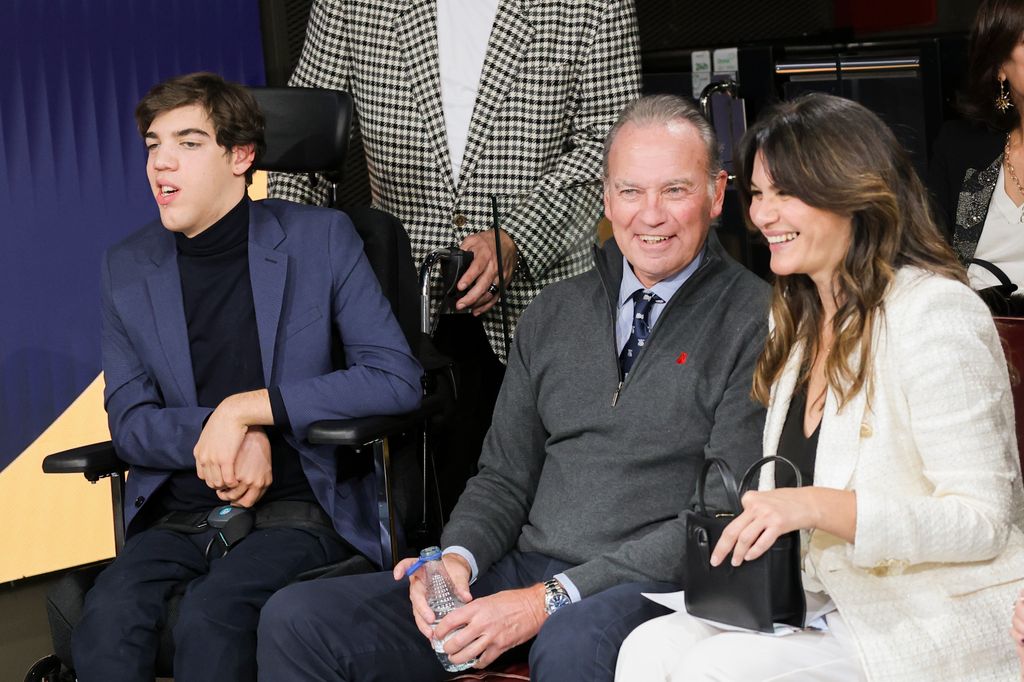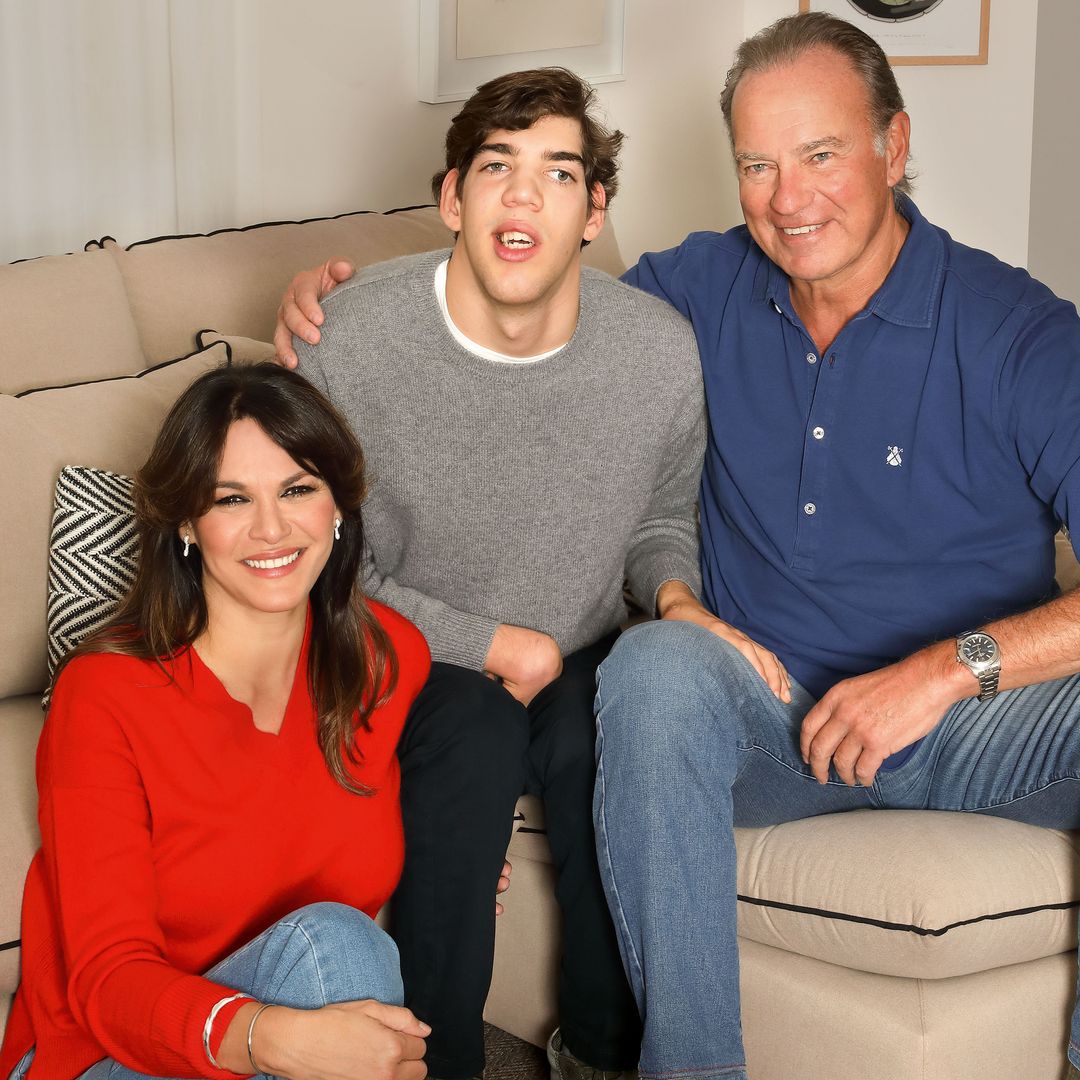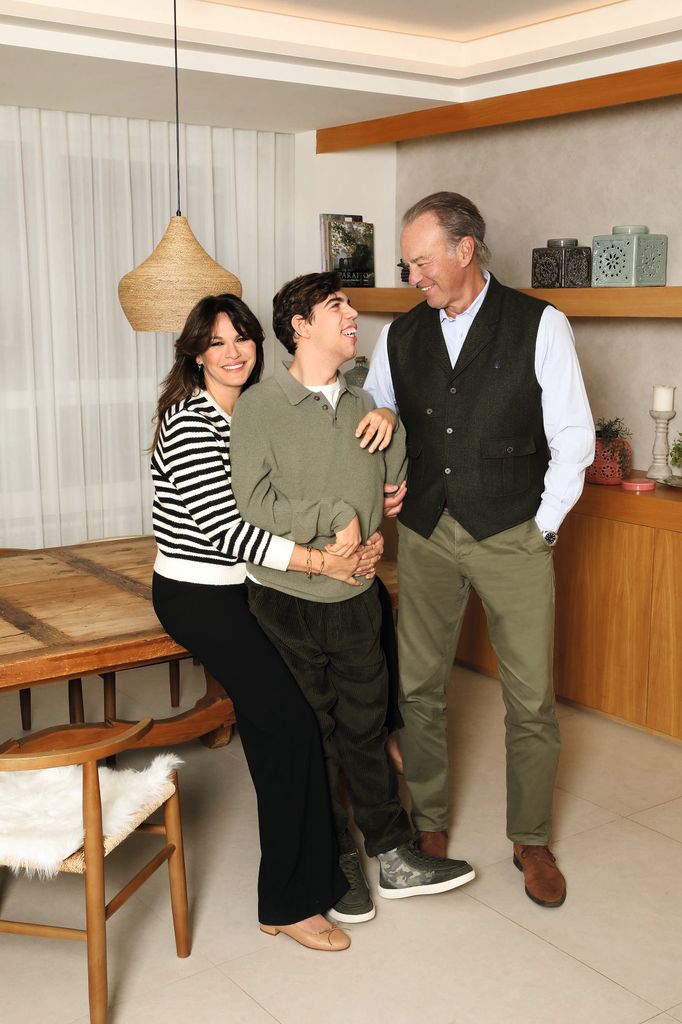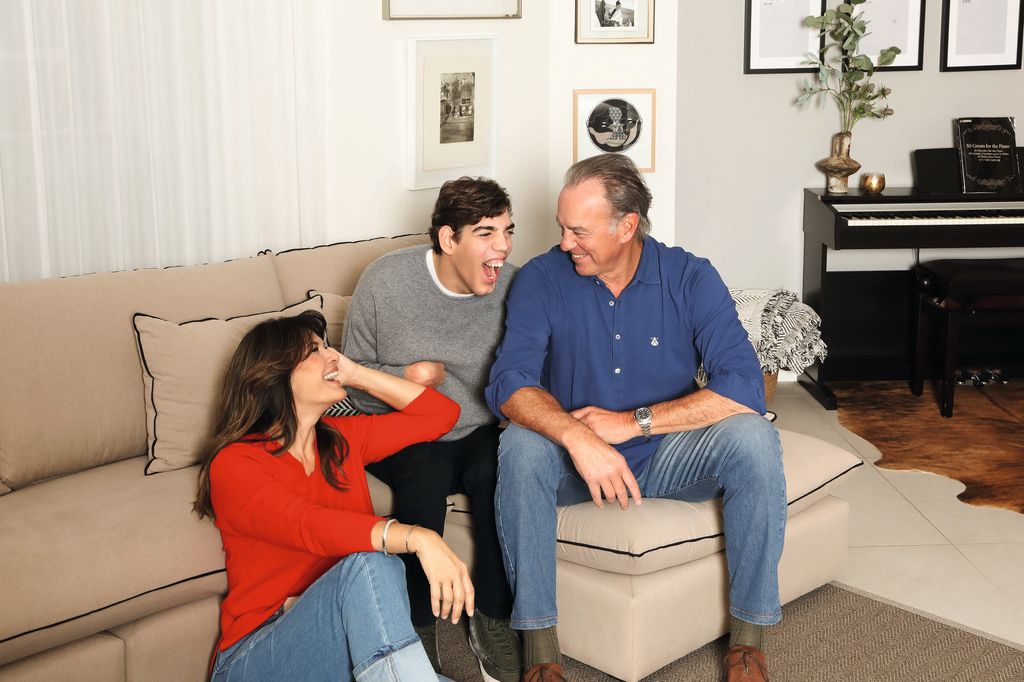A few days ago, at the same event, the doctor in Psychiatry Manuel Sans received an award. Also the psychologist specializing in bioneuroemotion Enric Coberta, the writer Marián Rojas, the chef Pepa Muñoz, artists such as Paco Arango and Paz Padilla, the anthropologist Izanami Muñoz and Belén Domínguez, a young woman from Seville with an intramedullary tumor, which has led her to tell her experience in a book. It happened in the II edition of the Dona2 awardsrecognitions that would never have come to light had it not been for the fact that its organizers never considered throwing in the towel. Not because of the logistics, obstacles or financing that a ceremony of this type requires… We are not referring to something so “prosaic” if you want. We talk about an unconditional surrender at a much earlier time. Specifically, if they had been carried away by a medical recommendation that was quite, let’s put it mildly, sui generis. Supported perhaps by the winds that were blowing then, but today it seems to us and we know that it is totally out of place, not to say that it was inhuman.
But they, the organizers of this awards ceremony, turned a deaf ear. They would never have followed “medical” instructions. In fact, They did the opposite and set a precedent. Fabiola Martínez and Bertín Osborne They refused to listen to the doctor who told them “there is nothing to do” 18 years ago. His son Kike had been born with problems and the best option was “to do something else, butterfly.” That was the revulsive, vehement and impetuous, that made them work against each other and build hope. Based on workshops and also bricks. Today it takes the form of the Bertín Osborne Foundation. Sorry, Kike Osborne Foundationbecause that child is of legal age when, however, they did not give him even two years to live. About that dark abyss into which their parents looked and then gained momentum and shed light on others like them, we spoke at length with the secondary characters in this story of improvement: with Fabiola and Bertín.
It was two weeks ago, in the glossy pages of HELLO! On the occasion of Kike’s birthday and his parents’ intention for him to now be the driving force and energy of a Foundation that was born for him but to help others. The Foundation already has its name but has been in existence for 15 years.
—Bertín, to what extent has the Foundation been a form of self-help for you and Fabiola during this time?
—The origin was not exactly that although, later, as Fabiola will tell you, it has taken us to other “places.” I’ll explain why. We were very clear about what we had to do with Kike. In fact, we were in the United States, several times at the institutes in Philadelphia. We were clear about what we had to do, but we did see so many people around us that no one had any idea where to start. Seeing this confusion and knowing that we could help many families who are truly experiencing a drama, we took that step. We did it and…
—…And you could not have done it. I mean, it was born from a feeling of empathy
—Yes because we didn’t have to, of course. We had our lives and therapy and treatments and everything very organized… We could have focused on our son and it was over. What happens is that when you go to clinics; to hospitals; You see yourself in doctors… and you see the tragedy that exists around you, if you can do your bit and make someone’s life easier, how can you not do it? We felt it was our obligation. And that’s why we started. We, at the foundation, have never, ever used any resource with Kike. No therapies, no chairs, no anything. It was something that Fabiola and I agreed on from the beginning.
—But wasn’t there a moment of total confusion for you?
-Of course. The thing is that the world of brain injury is a totally unknown world and the brain is the most unknown organ in the body… It is very difficult for someone to show you the north. And we also experienced that disorientation from day one. Our commitment was that we would try to help those people who were as lost as we were, which was 100%.
—That’s why I told you, that it was a gesture of generosity…
—Look, they told us “There is nothing to do… They have nothing to do.”
-As?
—As you hear it. This is what they told us: “Take care of other children you have and forget about it, there is nothing to do.”
“It didn’t even occur to us, but they say the same message to a couple who has no resources or who is alone, who doesn’t even know where to start… how can they not want to die? Doing that is a horror for families”
—I’m going crazy.
—We, we didn’t even consider that. Never. But they told you those kinds of things. Believe me. 18 years ago, that’s what they told you.
—It’s incredible.
—It didn’t even occur to us, but they say the same message to a couple who has no resources or who is alone, who doesn’t even know where to start… how can they not want to die? Doing that is a horror for families. And, above all, for the children, because if you follow that “recommendation”, who is going to take care of the children. That was the fundamental reason why we did this, because we thought the state of things was a disaster. And we could do something: help.
—Fortunately, things have turned out for the better.
—Today, fifteen years later, we continue. It’s a process. It has been a process. Many people are beginning to become aware that things are much better to talk about. After time, you realize that if you talk a lot about a topic that no one wants to talk about, in the end everyone ends up talking. Because everyone has someone close to them in a similar situation. Everyone. We decided to do it and of course, I think it was a fantastic decision.
—That… It compensates you in some way.
—Let’s see, everyone has the problem at home. It is not a consolation; It is a responsibility and an obligation. It is very nice when parents arrive and say: “Bertín, my son no longer drools; my son has taken three steps; “My son no longer has the crises he had.” That there are a lot of things to address, you know? For example: What can you legally do when your child has a disability? Well, we have legal support courses. A legal team that advises you, helps you and… you always find a parent who tells you: “Damn, I had no idea that we can apply for aid that no one had told us about,” right? You see that gratitude for a job well done and you are encouraged to continue and continue. And that is a responsibility that Fabiola assumed 100%.
Fabiola gave birth to Kike in 2007. He was a premature baby and had cerebral palsy due to a Listeria infection during pregnancy…
—Fabiola, has there been a moment when you have said: “I have made this vital and personal investment and it compensates me because he is my son and it compensates me because I help other mothers or families like me but I… maybe I wouldn’t have wanted to. do this in my life.” Have you had that feeling of rage, of turning against destiny?
—I was angry when Kike was born. But because I was facing acceptance. First, the loss of expectations of the son I thought I was going to have… I know that what I’m going to tell you is very personal but… Kike has taught me so many things that I wouldn’t change that for the world. Seriously no. For me, Kike is not just my son, he is a teacher of life. And every time I face things and see what he is like, what his strength is, I know that Kike teaches me, but that he teaches me a lot. Only at the beginning did I say: But why? Afterwards, I always thank God that he has left me everything these years… Without him, I would not be the Fabiola that I am.
—Has he rebuilt you in some way?
—If I hadn’t had the opportunity to be Kike’s mother, I wouldn’t be who I am. That is very clear to me. My parents are older and I know that, in the end, speaking of caring, by the law of life I will be with them, but there is no law of life that says what your child is going to do with a disability. I think that, at the time, when Kike was born, the opportunity occurred to be one way or another. Like at an intersection where you can make a bad decision and take a totally different path or a good decision and be happy with how it turned out. And so it was.
—Accept the transformation…
—And put the anger aside and say…
-I’m better than I was…
—Ugh, reaching that conclusion takes years (laughs) Look, what really changed me was getting away from why me why me. And understand that it wasn’t about me.
“It’s very nice when parents come and say: “Bertín, my son no longer drools; my son has taken three steps; my son no longer has the crises he had.”
—The focus is not on you, right?
—Of course, because in that beating you’re not thinking about the child, you’re thinking about whether you did it right, whether you were to blame, why you deserve that… It’s a constant “me, me, me.” You have to put yourself aside, and change focus, because it is not in you. It’s not in your frustration or your pain. He is hoping to be able to help that child who is another person. What is a person?
—It is an added emotional work
-Completely. And essential to survive. Because now not so much, but before, when you took your son to a rehabilitation center, the professionals told you: “Wait outside. “It’s just that if the child sees it, he starts crying and gets nervous.” And you, as a mother, felt that you had to step away, that that’s what professionals were for. Well, that is a message that weighs heavily on us mothers, because we begin to feel like we are part of the problem. Something like: “My son doesn’t do what he has to do because I’m there. Because of me.” And, no, sorry. You’ve seen him three times in your life and do you want to know more about my son than me, who knows what’s happening to him just by raising my eyebrow? For a long time and In many places, families have been made to feel like we don’t know. Or that we don’t have to be so involved or that we can’t give our opinion… So, in our case it was: ok, great, it’s true, there are families we don’t know. nothing. Well, let’s learn. Because when We already know, there is another type of communication. If we empower families, that mother or father will be able to reply: “No, I’ll stay. “I prefer to see you, because that’s how I learn.”




